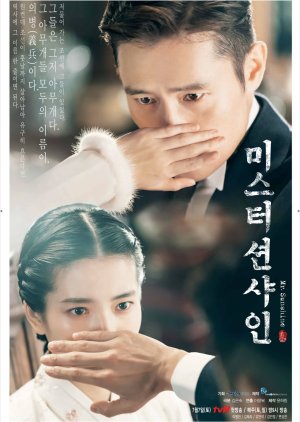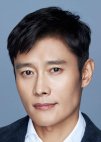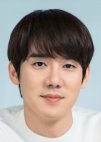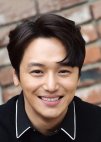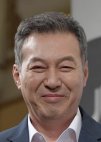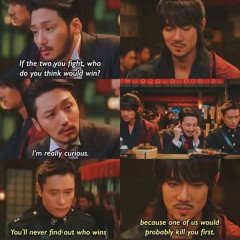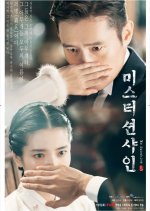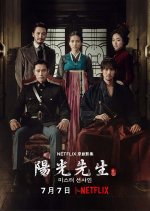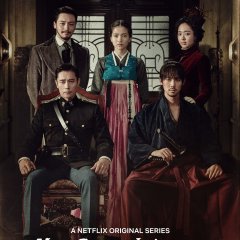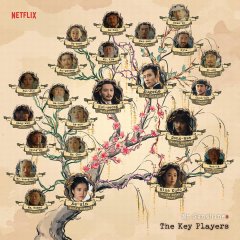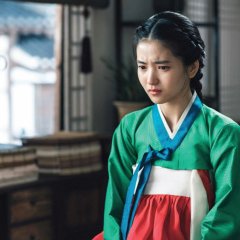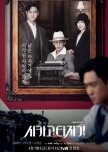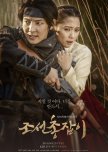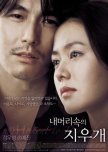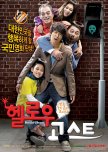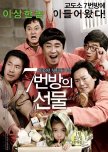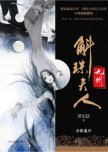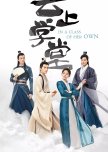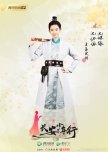 "I kept getting rejected from auditions": "Queen of Tears" Lee Joo Bin Talks About Her Past Struggle
"I kept getting rejected from auditions": "Queen of Tears" Lee Joo Bin Talks About Her Past Struggle Mr. Sunshine centers on a young boy born into a house servant's family who travels to the United States during the 1871 Shinmiyangyo (U.S. expedition to Korea). He returns to his homeland later as a U.S. marine officer. He meets and falls in love with an aristocrat’s daughter. At the same time, he discovers a plot by foreign forces to colonize Korea. Edit Translation
- English
- 한국어
- 中文(简体)
- 中文(台灣)
- Native Title: 미스터 션샤인
- Also Known As: Miseuteo Shunshain , Mister Sunshine
- Screenwriter: Kim Eun Sook
- Director: Lee Eung Bok, Jang Young Woo
- Genres: Military, Historical, Romance, Melodrama
Where to Watch Mr. Sunshine
Subscription (sub)
Cast & Credits
- Lee Byung Hun Main Role
- Kim Tae Ri Main Role
- Yoo Yeon Seok Main Role
- Kim Min Jung Main Role
- Byun Yo Han Main Role
- Kim Gab SooHwang Eun SanSupport Role
Reviews
This review may contain spoilers
Beautiful but ultimately hollow symbolism
I have finished watching MR SUNSHINE, and there was so much that I loved about this prestige kdrama. The writing of the heroine was SO good in how it discussed and defied some of the worse kdrama-heroine tropes. There was amazingly trenchant and deeply nuanced social criticism, gorgeous cinematography, lots of fascinating history, the warmest and most positive depiction of Christianity I've ever seen in a kdrama, men who drink respect women juice, the beautiful and angsty Gu Dong-Mae, FABULOUS period clothing, and rivals in love learning to put aside their differences in favour of shooting imperialists.But the show has a major flaw - a flaw that was particularly interesting to me, because it's the precise sort of flaw that I would be most prone to. The screenwriter, who does such brilliant work in so many other ways, is clearly most fascinated by the themes and symbolism she keeps bubbling away in the story's subtext. The problem is that these themes and symbolism - which delightfully clever - are not actually supported by the storytelling, and particularly by the characterisation.
And it's a really fun, rich, resonant bit of symbolism: Ae-Sin is not just a character in the story, she's the living embodiment of Joseon Korea. She's beautiful, desirable, noble, privileged, gradually awakening to a life of hardship and struggle and resistance. Each of the three male leads in the story has a different complicated relationship with her. Eugene has run away from Korea, but returning as an adult cannot help falling in love with the land and the people in defiance of the nobility who mistreated him as a boy. Gu Dong-mae was horribly oppressed by his homeland but cannot help loving it anyway; the Korea which oppressed both men also saved their lives through small acts of kindness. And finally, Hee-Sung, Korea's richest son, is her approved betrothed, but past injustices committed by his family against the people Ae-Sin cares about stand between them. The three men fall in love, not with Ae-Sin, but with their homeland. They express their love for the woman by sacrificing themselves for the homeland; in dedicating themselves to her, they cannot help dedicating themselves to the fight for freedom.
This is why the story had to have a sad ending. None of these men can espouse the whole country; they can only die for her, while Ae-Sin - Korea itself - lives on, alone and victorious, even in exile.
This symbolism is itself delightfully rich, deftly painted, and rewarding to think back upon once you see it. There's only one problem: it doesn't. make. sense.
From the very start of the show, I felt a little impatient with the writing because the relationships between the heroine and her three suitors are so poorly developed. The feelings come out of nowhere. Take Gu Dong-Mae, for instance: he last met this woman when she saved his life as children. Now, it just takes a brush of her dress across his fingers to get him pining madly for her. Hee-Sung, after avoiding her for the best part of a decade, gets one glimpse of Ae-Sin at the washing-line and just like that conceives an undying passion for her. The central relationship, between Ae-Sin and Eugene, doesn't fare much better. The problem is that the story demands each of the male leads to sacrifice himself for Ae-Sin by the end of the show, and I simply couldn't understand why they should. They all have multiple other women pining for them, and Ae-Sin doesn't give two of them the slightest encouragement to hope. I wanted them so badly to find happiness with one of the other women, and they never did.
What MR SUNSHINE needed was not primarily rich and complex symbolism - it was believable characterisation and relationship development. As it was, the lack of substance to the relationships cheapened the grand historical tragedy which was being told. When at the climactic moment the last of the three leads sacrifices himself for the heroine, it felt cheesy and unintentionally funny, rather than tragic.
I loved so much about this story, but the heart of it never clicked for me, and it's a crying shame that with all that budget and talent, it wasn't better written. And that, for me, will be the central tragedy of MR SUNSHINE.
Was this review helpful to you?
Disappointing. It’s visually stunning, music is great, but that’s it.
I’m disappointed. The story is not good. Or maybe I just expected so much from the glimpse I had from the music video and reviews here.The music video of Park hyo shin’s ost is a way better story than the entire series. It’s unnecessarily long just to keep dragging the episodes to showcase the beautiful cinematography.
Story: Why so long? Is it to cater for the countless slow motions and CGI? Or is it to make it seem like a big shot kdrama? Most of the scenes are empty, the order of the series is a mess, maybe they were just trying to be more historically accurate but if then they couldve just made a movie. The war that I was expecting for the last episode actually happened in the first episode, and it was just a glimpse. The feeling of patriotism that I’ve been waiting for was concealed in a very short scenes, then the lovestory-filled ending came up, then the end.
Cast/Acting: I don’t buy the main leads. Why does it have to be Lee byung hun? He might as well became the father figure for the main female lead. I could see hyun bin as a more fitting cast for the character. Kim tae ri, okay so many better actress to portray this role, but I can forgive this. The rest of the main leads, perfect.
Music: One of the best soundtracks in kdramaworld. Thank you Park hyo shin and Baek ji young.
Rewatch: No, because it’s so long and empty, I might actually fall asleep. Actually I did fell asleep so many times while watching this, I just woke up one morning and the entire series has been streamed out. Lol!
Overall: Very disappointed. Unlike the claims of other fans about this drama as patriotic, historical etc. it actually focused on the lovestory of the main leads, the main leads as in the five main leads.
There are only three good things about this drama.
1. The cinematography
2. The music
3. The mourning scenes in ep 20.
Was this review helpful to you?

